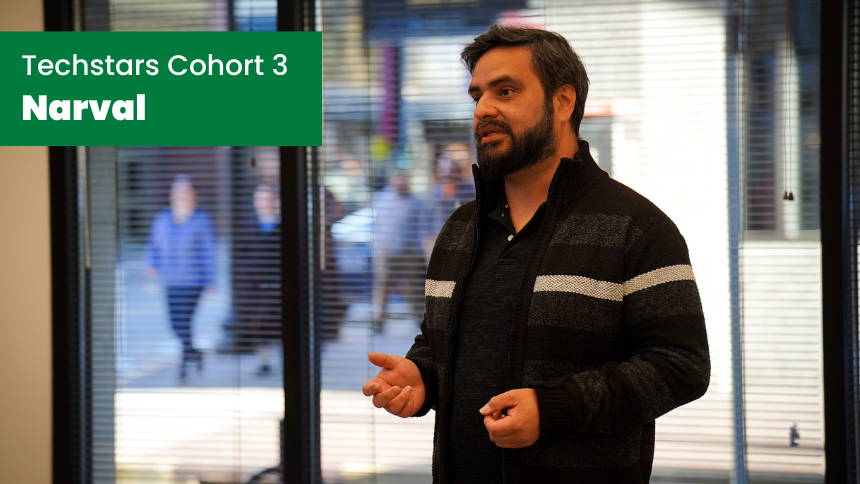
Narval is focused on making antibody drugs safer, easier to use, less costly, and without systemic side effects
This is Jose Luis Nuño's third start-up, and each was in the biotechnology sector.
For Jose Luis Nuño, his latest venture named Narval is a continuation of a longtime passion for the biological part of chemistry that started during his undergraduate days at the Autonomous University of Guadalajara in Mexico.
Along the way, he earned an M.S. in Biotechnology and two doctorates. He worked for global pharmaceutical company Boehringer Ingelheim where he was involved first in the R&D of new vaccines, and in his last few years on marketing and sales with key customers like Tyson Foods.
“I always wanted to create something,” Nuño says, and Narval is his third start-up. He is the Founder and Chief Executive Officer, joined by his brother, Alejandro, for the third cohort of the “Techstars Industries of the Future Accelerator” currently underway in Knoxville. Demo Day is set for 4 to 8 p.m. EDT on June 6 at Regas Square, 333 West Depot Avenue, and the public is invited. To register, click here.
“Our focus is on making antibody drugs safer, easier to use, less costly, and without systemic side effects,” Nuño says, explaining that their mission is to increase access to life-saving therapeutics for billions, with a special interest in targeting citizens in underdeveloped countries where access to healthcare is limited, if even available.
Narval develops synthetic Antibody Mimetic ProteinsTM (AMP) to replace conventional antibodies in novel first-in-class therapeutics and makes antibody drugs accessible to everyone. He adds that its first candidate is an ophthalmology treatment for eyes.
“We need to show it works in humans, and the medical science expertise at UT (University of Tennessee) is quite a good fit,” Nuño says. “It’s the best place for us to be right now.”
In addition to the specific ties to the UT System such as the Hamilton Eye Institute at the Health Science Center in Memphis, Nuño also notes that innovation is medical technologies is being driven by more and more start-ups, and those start-ups are not just in the big cities across the world.
He adds that the Techstars experience in helping start-ups raise capital attracted Narval. After all, bringing new drugs to market takes time and money.
This is not Nuño’s first start-up; it is his third.
The first one was named Custovac. Launched in 2005, it had a good, nine-year run focused on vaccinating poultry and swine in 14 developing countries before the vaccination process changed from being done on the farm to being handled in an incubator.
In 2015, he helped launch a second company named Unima that developed a fast and low-cost point-of-care diagnostic test using VNAR (Variable New Antigen Receptor) antibodies, microfluidics, and artificial intelligence to secure a time diagnostic for everyone, anywhere.
“The diagnostics in emerging countries was similar to what we saw on farms,” Nuño said, explaining that access to a diagnostic lab was frequently impossible.
“We built and validated a test, and it worked well, but then COVID came,” he added. The start-up shifted its focus to developing a COVID test that it was able to validate and secure some traction.
In 2023, Unima sold the technology to another company and shut down.
“I started to think about what comes next,” Nuño said, and Narval was the answer.
Like what you've read?
Forward to a friend!

